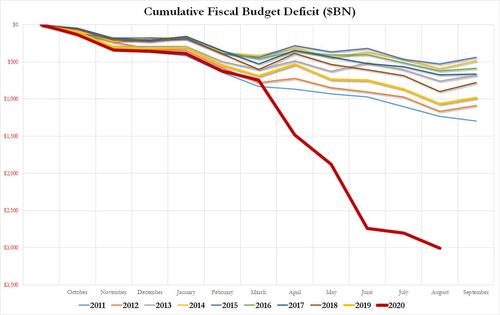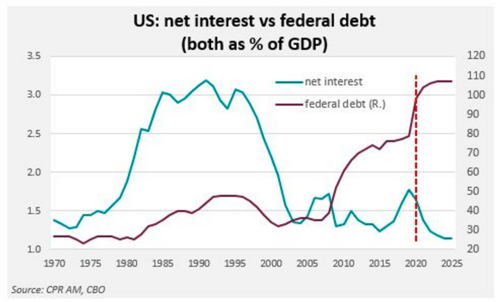Upcoming influencers for gold pricing
Market participants and investors will focus on two primary factors which could have a profound impact on market sentiment. The two factors are the upcoming FOMC meeting scheduled to begin next week, and the Treasury Department’s report that this year’s budget deficit is nearly triple when compared to last year.

The United States Treasury Department reported today that the federal budget deficit in the United States is now above $3 trillion with one month remaining for fiscal 2020. This is more than double the federal budget deficit for 2019. In August alone expenditures created an additional $200 billion in debt.

According to the Associated Press, “The U.S. budget deficit hit an all-time high of $3 trillion for the first 11 months of this budget year, the Treasury Department said Friday. The ocean of red ink is a product of the government’s massive spending to try to cushion the impact of a coronavirus-fueled recession that has cost millions of jobs.”
The Associated Press report also said that with one month to go in the 2020 fiscal year, the deficit could go even higher. The Congressional Budget Office is forecasting the deficit for this year will reach a record $3.3 trillion.
Considering that the budget deficit last year came in at $984 billion, the capital expenditure allocated by the U.S. Treasury Department to fund the ‘cares act’ has in essence tripled the budget deficit from 2019. In fact, this year’s budget deficit is more than double the record deficit of $1.4 trillion which occurred in 2009.
One huge factor which will temper this tremendous debt is that the government’s interest cost to finance is actually down 10% this year, currently at $484 billion when compared to the cost of interest payments the government incurred last year. This is do to interest rates currently being near zero.
Beginning next week, the Federal Reserve will convene for the September FOMC meeting. Current consensus expects that the Federal Reserve will continue its current monetary policy. This policy which has set the Fed funds rate near zero, with quantitative easing allocating purchases of approximately $120 billion per month, as the Fed adds mortgage backed securities, treasuries and corporate bonds to their asset balance sheet is weighing heavy on traders’ minds.
According to Magnify Money, “The Fed also extended the life span of its loan and liquidity facilities, recognizing the recovery may take longer than originally planned. Still, the Fed continues to call for further fiscal support from Congress and the Department of the Treasury to avoid long-lasting economic and societal damage.”
It is expected that during next week’s meeting Federal Reserve members will focus on its main framework to achieve its dual mandate of maximum employment and controlled inflation, although more emphasis is currently being put upon the employment side. It is highly unlikely that the Federal Reserve will raise interest rates.
Both factors, the expanding budget deficit and next week’s FOMC meeting should be supportive of the bullish sentiment that has existed in the safe-haven asset class, i.e. gold.
Gold futures basis the most active December 2020 Comex contract sustained moderate losses today giving up approximately 8/10 of a percent, and is currently fixed at $1948.10.
By Gary Wagner
David